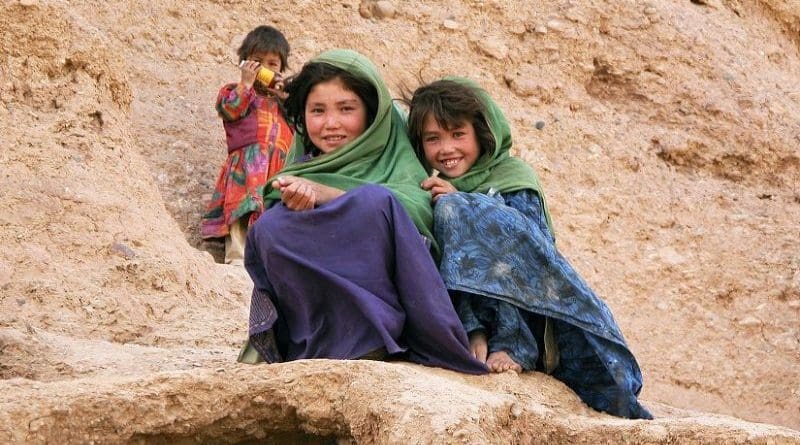Sexual Violence As A Weapon Of War: Nobel Peace Prize 2018 – OpEd
By Irfan Khan*
Nadia Murad, a 25-year-old woman from the Yazidi-Kurdish minority in Iraq who was the victim of extreme sexual violence by the Islamic State group, has been awarded the 2018 Noble Peace Prize. Murad, after Malala Yousafzai, became the second youngest lady to receive the Nobel Peace Prize. Dennis Mukwege, who is a veteran gynecologist and surgeon shared the Nobel Peace Prize with Nadia Murad. Being an expert in his field, Mukwege serves humanity with full devotion such that mending peoples who are victims of rape, sexual violence subjected by the armed rebels in the Democratic Republic of Congo (DRC).
On the day of International Human Rights, December 10, 2108 (the 70th anniversary of the Universal Declaration of Human Rights), both Nobel Laurates gave their impressive lectures in the Oslo city Hall. They argued that sexual violence is one of the oldest and most awful of weapons in wars and conflicts. Nadia Murad now resides as a refugee in Germany where she is human rights activist, w hile, Dennis Mukwege established the Panzi hospital and foundation in Bukavu in eastern DRC.
While announcing the Nobel Peace Prize winners, Berit Reiss-Anderson, the committee chairperson portrayed a difference between sexual violence that is committed during wars and conflicts from that of sexual violence under the theme of the ME-TO# movement. As such, the Nobel Peace committee embroiled the focus on sexual violence, as occurred in in wars.
Recalling the conflicts in Bosnia, Bangladesh, Cambodia, Cyrus, Haiti, Liberia, Somalia, Uganda, Herzegovina, Peru and Rwanda, girls had been separated alone for rape, torture and executions, and are subject to mental trauma.
Systematic rape is often used as a weapon of war in the ethnic cleansing. According to a European Union fact-finding team, more than 20,000 Muslims girls and women were raped during the Bosnia war in 1992. Many more teenage girls were raped in Croatia and Herzegovina, according to a 1996 World Children Report.
The State of the World’s Children 1996 report notes that the disintegration of families in times of war leaves women and girls especially vulnerable to violence. Nearly 80 percent of the 53 million people uprooted by wars today are women and children. When fathers, husbands, brothers and sons are drawn away to fight, they leave women, the very young and the elderly to fend for themselves. In Bosnia and Herzegovina, Myanmar and Somalia, refugee families frequently cite rape or the fear of rape as a key factor in their decisions to seek refuge.
During Mozambique’s conflict, young boys, who themselves had been traumatized by violence, were reported to threaten to kill or starve girls if they resisted the boys’ sexual advances. Sexual assault presents a major problem in camps for refugees and the displaced, according to the report. The incidence of rape was reported to be alarmingly high at camps for Somali refugees in Kenya in 1993. The camps were located in isolated areas, and hundreds of women were raped in night raids or while foraging for firewood.
In October 1992, representatives from Asia Watch and Physicians for Human Rights (PHR) traveled to Kashmir to document rape and other human rights abuses and violations of the laws of war by Indian security forces. They also investigated incidents of abuse by armed militant groups who have also committed rape and other attacks on civilians. PHR and Asia Watch condemned these crimes as violations of international human rights and humanitarian law.
As of January 2014, an estimated 750,000 Palestinians have been incarcerated in Israeli prisons, including 23,000 women and 25,000 children since the Six-Day war in 1967. Women in Israeli prisons are frequently subjected to both physical and sexual abuse. Aside from the 750,000 Palestinians that were made refugees in 1948 during Israel’s creation, Israeli forces have also destroyed around 50,000 Palestinian houses since 1967 rendering hundreds of thousands of women and children homeless. Israel has imposed severe restrictions on movement within the West Bank. Between 2001 and 2005, 67 women were forced to give birth at an Israeli erected check point they had to cross to get to the hospital because the occupation forces would not allow them past. Thirty-six babies died.
The United Nation’s implementation of human rights seems to be failing if we look at the entire world in terms of human rights. Each year, the Nobel Prize is awarded, but the dream of a violation-free and peaceful world continues to remain unfulfilled.
*Irfan Khan, Researcher at QAU, Islamabad and writer at Daily Time, Dunya Blogs, Naya Daur, and EACPE

